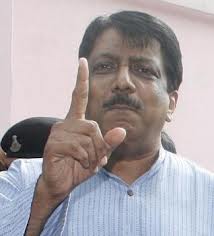
New Delhi, July 30: A day after the Samajwadi Party disowned him for his interview of Gujarat Chief Minister Narendra Modi, Shahid Siddiqui, Editor of Urdu weekly Nai Duniya, hit back on Sunday, saying the party had shot the messenger.
Defending his decision to interview Mr. Modi, Mr. Siddiqui said he asked the Chief Minister tough questions on his role in the 2002 riots, which none had done so far. “I asked questions which nobody poses to Mr. Modi. People are scared even to see him in the eyes, but I asked him tough questions. So there is no question of my favouring anyone.”
“They have shot the messenger. They are suffering from guilt as they have inducted into the party people like Kalyan Singh and Sakshi Maharaj, who were responsible for the demolition of the Babri Mosque, and still there are such elements there,” Mr. Siddiqui told PTI.
Terming a “white lie” the party’s claim that he was not its member, Mr. Siddiqui, a former Rajya Sabha member, said he was re-inducted into the party by [president] Mulayam Singh Yadav in January and made its spokesperson. “They are telling white lies about my not being a party member. This year, on January 6, Mulayam Singh introduced me to the media as party spokesperson.”
Asked about his future course of action, he said political outfits were “family affairs and have no respect for the freedom of speech, and that is why I will stay away from party politics and continue to write and speak for a secular India.”
Mr. Siddiqui alleged that ever since the SP came back to power in Uttar Pradesh, it had done nothing for Muslims, “and by portraying me as pro-Modi, it is trying to win back the support of the community” to strengthen its vote-bank.





Comments
Add new comment